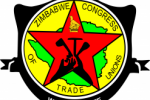By Own Correspondent
INDUSTRY lobby group, Zimbabwe National Chamber of Commerce (ZNCC) has warned that the country could be losing US$2 billion annually through porous borders, a sad loss which may have contributed towards the loss of 20 000 jobs.
The details contained in the submissions to government recently, have red-flagged shocking mismanagement at strategic pillars of the state, reducing what was once an African pride into a desperate economy buffeted by shortages and extreme poverty.
Authorities have blamed the crisis on targeted sanctions imposed by Western powers over two decades ago although evidence of the destructive force of poor governance are visible across markets.
The list of fundamentals that have gone wrong is long, as confirmed in a ZNCC paper submitted to government, spelling out business’ expectations for the 2025 National Budget.
The ZNCC chronicled industries’ worries spanning from the debilitating consequences of the controversial Intermediated Money Transfer Tax (IMTT), to pressures being exerted on the economy by debt distress.
It also flagged a growing list of statutory obligations and fees, including sin taxes announced through a statutory instrument recently.
The submissions said economic costs emanating from laxity in border controls by the Zimbabwe Revenue Authority (Zimra) and other agencies mandated to police cross-border movement of goods.
“The porous nature of Zimbabwe's borders facilitates the smuggling of goods, which undermines the formal economy and leads to widespread illegality and informality,” ZNCC said.
“This issue not only deprives the government of revenue but also fuels the growth of an underground economy that is difficult to regulate. It is estimated that financial leakages in Zimbabwe’s ports of entry amount to between US$1,8 billion and US$2,2 billion annually. These leakages represent the revenue that could have been utilised for critical national development projects, including infrastructure, health care and education.”
Following years of de-industrialisation and job market carnage, International Monetary Fund estimates showed about 60 percent of the economy was under the informal market.
The ZNCC warned that unless the government set the stage for a roadmap that confronts Zimbabwe’s problems, waves of job market carnage would continue as cheap goods smuggled by informal traders flood markets, knocking off established industries.
The collapse of Zimbabwe’s once powerful textile industry has been attributed to the growth of the informal market.
Bankruptcies recently experienced in the retail sector, along with the divestment of multinational brands, have also been triggered by the powerful underground economy created by years of poor governance and corruption.
“The influx of cheap and undeclared imports facilitated by inadequate border management has led to intense competition for local manufacturers,” ZNCC warned.
“The competition has resulted in the downsizing of local industries and the loss of between 18 000 and 20 000 jobs. The erosion of the industrial base weakens Zimbabwe’s economic resilience and threatens the livelihoods of thousands of citizens. We urge Zimra to move with speed in the ongoing digitisation of the border clearance and surveillance systems,” ZNCC said in the paper.








Leave a comment